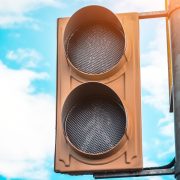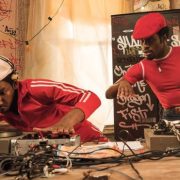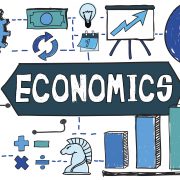Anyone observing a colony of ants will notice that these creatures appear to be among the most organized of the animal kingdom. Never failing to stay in formation, these ants seem to be heeding the call of some unseen authority. So widely held is this observation, that ants are usually seen as the epitome of conformity, thinking not for themselves but steadfastly following a central authority.
But what if our observations are incorrect. What if instead of being the perfect example of submission to power, ants represent something vastly different than blind obedience. Perhaps, ants are actually a manifestation of what F.A. Hayek called, spontaneous order.
Individuals are each armed with knowledge specific to their own unique lives. But as much as each person knows or thinks they know, it can never be enough to plan for society as a whole. It is for this very reason that planned societies are so dangerous. It claims to have a perfect knowledge of things when such an act would be completely impossible.
And yet, popular opinion has arrived at an opposite conclusion. The idea of leaving the market to its own devices is seen not only as risky but dangerous. Without laws, who would be there to protect consumers from tyrannical capitalists? Without regulations, how would we ensure that the world would not dissent into a chaotic free-for-all in which every man was out only to protect themselves? Many cling to this belief structure and use it as a justification for why we need more government in almost every area of our lives.
But, as has been discussed before, nature has been a prime example of showing us that there is actually more order born out of this “chaos” than has ever existed as a result of man-made laws. And for anyone doubting this fact, they need only take a closer look at our small ant friends.
Market Signals
Just as humans have spontaneously created language as a means of guiding our actions in cooperation with others, so have ants learned to communicate with each other to achieve the most productive possible results. Rather than obeying some central authority, as is often believed, ants rely on pheromones and hydrocarbons— described by the dictionary as being “a compound of hydrogen and carbon, such as any of those that are the chief components of petroleum and natural gas.” In short, these signals serve as a language used between these ants to communicate with each other.
It is this signaling system that informs the other ants where to dig and where to forage, so that they may not waste their time on fruitless endeavors. It also warns of the danger that may be lurking ahead. This organic signalling helps maintain natural order for the entire colony while combining the individual knowledge held by each ant. It is a remedy to the knowledge problem because it recognizes that no one single ant has all the information needed for survival. They must rely on their joint knowledge to achieve the greatest results because relying on one sole ant would simply be dangerous and illogical.
Think of it as a bunch of drivers on the road. When there is a long patch of road without lights or stop signs, drivers rely on hand signals and gestures to communicate with each other so as to prevent dangerous situations from arising. And somehow, without central authority, this communication structure is able to happen seamlessly most of the time.
But instead of using hand signals, the ants secrete pheromones and hydrocarbons and help give feedback to the others in their colony. If there is danger in a surrounding area, the ants will send out the signal and others will know to avoid the chaos. It is the ant version of Yelp, giving feedback and telling consumers which products or companies to avoid. And again, this happens without anyone calling the shots. As pheromones change and ants pick up on the scents of their brothers and sisters, they adjust their actions accordingly. The very same thing happens in the market.
It is this system, or lack thereof, that has allowed these resilient creatures to survive, albeit to the dismay of many annoyed humans. Since each ant is armed with its own knowledge of the environment surrounding them, they are best suited to warn others. If there were a leader of an ant colony, this survival system would crumble to the ground because one ant, just like one single person, is incapable of knowing everything.
It seems almost silly, then, that the animal kingdom is wiser than humans when it comes to emergent order.
Rules, Rules, Rules
Humans are scared to put their trust in market order because they have been trained not to. We have been taught from birth to rely on central authority to tell us what to do. In school, we are taught that we cannot do any action unless condoned by a teacher because, they must know better than we do.
We do not trust our own instincts, or our own judgement, as a result of these rules. But it only serves to our own dismay. But the internet is changing the way we communicate. Social media and the wonders of technology are allowing us to benefit from the knowledge of others. None of us will ever have all the information needed to make fully informed decisions when it comes to the rest of the world, but by sharing this knowledge we bridge the gap. Just like the ants communicate with each other for the best possible outcomes, so can individuals share their personal knowledge with others for the best possible outcomes. And the real beauty of this is that it doesn’t require a central authority.
Indeed, humans could learn a lot from paying more attention to the emergent order of the animal kingdom, and less attention to arbitrary and uninformed central authority.













